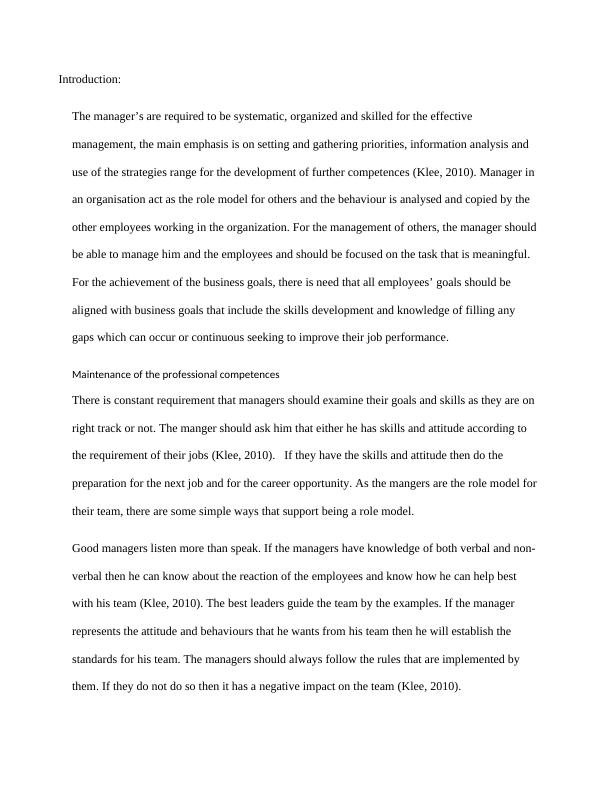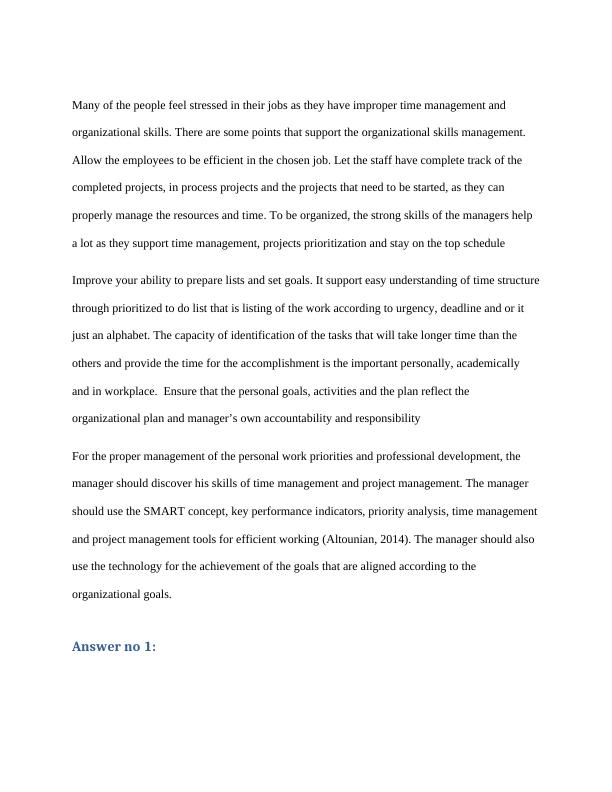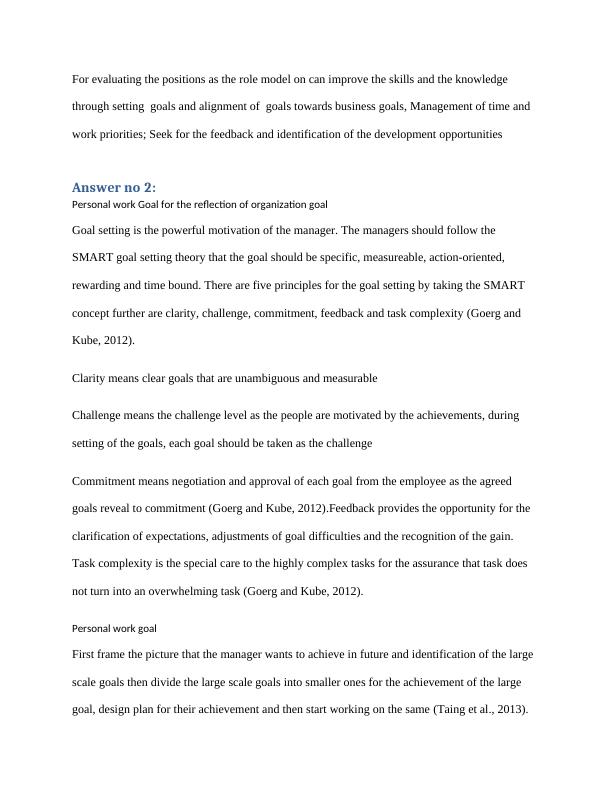Effective Management: Prioritization, Skill Development, and Goal Setting
To demonstrate knowledge of foundation skills, knowledge evidence, and performance evidence by completing questions related to performance measurement, personal development, goal setting, and training opportunities.
10 Pages2264 Words455 Views
Added on 2023-06-13
About This Document
This article discusses effective management techniques such as prioritization, skill development, and goal setting. It emphasizes the importance of aligning personal goals with business goals and using technology for efficient working. It also provides tips for improving time management and organizational skills to reduce stress and increase productivity.
Effective Management: Prioritization, Skill Development, and Goal Setting
To demonstrate knowledge of foundation skills, knowledge evidence, and performance evidence by completing questions related to performance measurement, personal development, goal setting, and training opportunities.
Added on 2023-06-13
ShareRelated Documents
End of preview
Want to access all the pages? Upload your documents or become a member.
Lead and Influence Assignment
|7
|1466
|54
Leadership Principles of Warren Buffett
|11
|3887
|57
Assignment on project managers
|4
|1478
|178
Management of Personal Work Priorities: Techniques and Strategies
|10
|640
|176
HRM Assignment Human Resource Management
|8
|1394
|304
(PDF) Leadership and Motivation
|4
|717
|88



